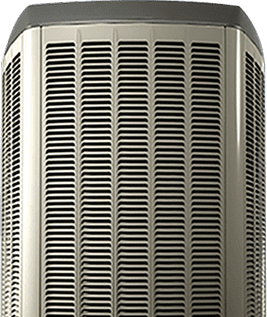Does turning down the heat at night save money?

Does turning down the heat at night save money?
A common concern among households is cutting back on monthly utility costs, particularly in the wintertime, which raises an age-old debate about whether you can save money by lowering your heating system while you’re sleeping. If this is something you’ve wondered yourself, stick around as the team from Mersey Heating and Air Conditioning breaks down the ins and outs of how to save money on your energy costs below.
Is it better to turn the heater on a low setting at night?
As we said, whether or not it’s better to turn your heater on a lower setting at night has long been debated between homeowners. And the truth is that it can vary based on several aspects, including your personal comfort preferences, energy efficiency goals, and your finances.
More often than not, it all depends on how well-insulated and efficient your home is. For example, better-insulated homes can retain indoor heat for more time than homes with poor insulation, which makes it a better choice to turn off the heat in the evening without sacrificing your overall comfort levels. In contrast, if you live in an older home where the insulation levels aren’t as sufficient, it may make more sense to maintain a moderate and constant temperature during the night rather than turning it off completely.
It really comes down to how you sleep at night. Some people find it difficult to sleep when it’s cold indoors, while others find it challenging to sleep when the temperatures are too warm. So, take these factors into account and choose something that works best for you.
How low should I turn my thermostat down at night?
The ideal nighttime thermostat setting can vary depending on the energy efficiency of your house, the environmental conditions in your area, and your own personal preferences. Nonetheless, energy professionals usually suggest reducing the thermostat’s standard daytime setting by 3 to 5 degrees Celsius.
To determine the perfect thermostat setting for the evening, you are going to need to experiment a little. Try out different temperatures to determine what works best for your home so that you can maximize comfort and energy efficiency at night.
How can I turn down the heat of my thermostat?
If you want to turn down the heat in your home, you’ll likely need to adjust your thermostat. Here is a closer look at how you can go about doing so:
1. Find your thermostat: First, you need to look around your house for the thermostat. In most homes, the thermostat will be mounted on a wall that is usually in a hallway or in the living room.
2. Get familiar with how your thermostat works: Next, you need to learn how to operate your thermostat controls. Most modern thermostats are touch screens. However, you may have one with buttons that control the settings.
3. Reduce the temperature: To change the temperature, find the temperature adjustment keys. The temperature can typically be adjusted with buttons or an interactive touchscreen. Push the down key (usually an arrow) to reduce the indoor temperature setting.
4. Examine the configuration of your thermostat: Some thermostats have the option of working at different times of the day. If your thermostat includes this setting, you can program it to lower the temperature on its own at specific times, such as right before bed.
5. Keep a close eye on your indoor temperature: Observe the thermostat to ensure that the temperature that you want is displayed. Make any further adjustments as needed.
As you sleep or are away from home and require less heat, keep in mind that turning down the thermostat can aid you in saving money on your utility costs. One simple way to efficiently regulate the indoor temperature of your house is to use a smart thermostat and modify it based on your usual activities and personal preferences.
In what other ways can I save energy?
Not only does conserving power benefit the environment, but it also lowers utility costs, which means more money in your pocket at the end of each month. Let’s take a closer look at some other ways you can save energy in your home:
· Keep your HVAC system in tip-top shape: To guarantee that both your cooling and heating systems are operating as efficiently as possible, maintain and change the air filters in your system on an ongoing basis and make an appointment for qualified service at least every 12 months.
· Install appliances with low energy consumption: If you choose new appliances with the ENERGY STAR label, you can save on energy costs as these appliances meet strict energy efficiency regulations.
· Consider a smart thermostat: Installing and configuring a programmable thermostat will allow it to adjust the interior temperature of your home automatically while you’re away or asleep by programming a schedule in advance.
· Insulate and block leaks: Make sure that all cracks and leaks are sealed, and be on the lookout for drafts near windows and doors. Proper insulation throughout your home is absolutely essential.
· Clean your air ducts: Overtime, dust, hair, pet dander, and other debris can collect in your air ducts, which in turn hinders airflow from your HVAC system. As a consequence, your HVAC system will need to work harder to heat or cool your home. By cleaning your air ducts once every two to three years, you can maintain your home’s energy efficiency levels.
Looking for ways to increase your home’s energy efficiency levels? Mersey Heating and Air Conditioning is available 24/7/365 days a year, including after-hours, weekends, and holidays, at no extra charge for all repair and maintenance services. In addition, if you’re in the market for a new HVAC system, we provide a number of financing options and incentives that may help you save big! You can also get a free quote for the purchase of a new system during your initial consultation!
Book your appointment over the phone or use our online booking form!
